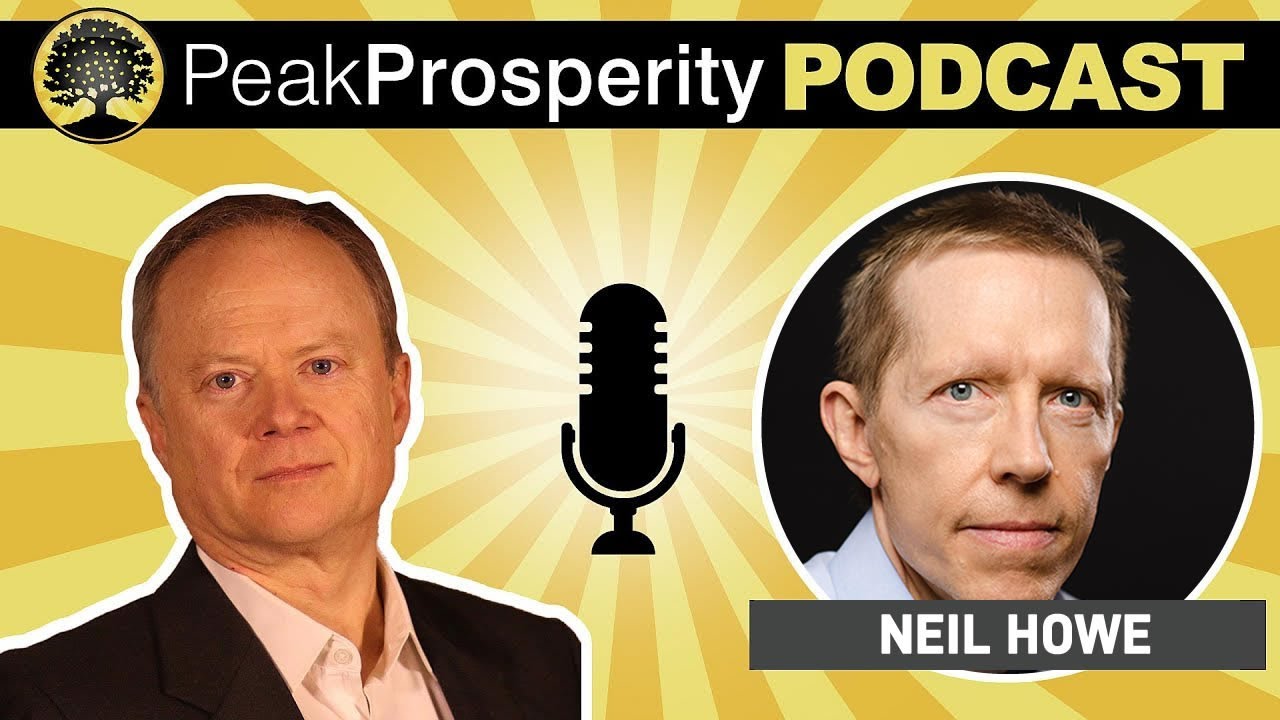Neil Howe, demographer and co-authour of the book The Fourth Turning, returns to the podcast this week. In our prior interviews with him, we’ve explored his study of generational cycles (“turnings”) in America which reveal predictable social trends that recur throughout history and invariably result in transformational crisis (a “fourth turning”).
Fourth turnings are characterized by a growing demand for social order, yet supply of it remains weak. The emergence of the surveillance state, a perpetual war machine, increased intervention in failing markets by the central planners, greater government control of critical systems like health care and the Internet — all of these are classic fourth turning signs of the desperation authorities exert as they lose control.
History shows time and time again that such overreach ends in rejection of the current order, usually via violent revolution.
Now that we’re roughly halfway through the current Fourth Turning and things have really started to unravel here in 2020, we’ve asked Neil back on the program to update us on what to expect next:
During times of peace and prosperity, inequality over time always increases. It always increases. There are only four things which reduced inequality through history: total war, total revolution, famines, and plagues.You have this weird situation in America now the where interest rates are practically 0% and almost no one is doing any investing. How do you explain such high returns on existing capital with 0% interest rates, and yet no one’s using those low interest rates? Because new creators of business can’t get the same high returns as the incumbents. That’s the reason.
So we have a bifurcated market and I think that this is what has to be broken down. The fourth turning is to some extent an act of creative destruction. It destroys as much as it creates. We saw that in the 1930s. We saw that in the 1940s which, by the way, was a period of huge shift from inequality to equality in America.
But I do think there’s a broader point about inequality and this is point about creative destruction. There has to be some destruction in there. You have to destroy the privileges. You have to destroy the sinecures – and that’s never pleasant. But it’s part of the process.
I’ve often told people – if they expect to see Social Security reformed, global warming solved, and god knows what else you’re talking about on a peaceful sunny day – that big reforms come about during dark and stormy nights. And I’m talking about BIG reforms…reforms that actually commit society to huge new sacrifices.
To hear which developments are most likely to happen next during this current Fourth Turning, click the play button below to listen to Chris’ interview with Neil Howe (57m:25s)
Other Ways To Listen: iTunes | Google Play | SoundCloud | Stitcher | YouTube | Download |
This is a companion discussion topic for the original entry at https://peakprosperity.com/neil-howe-the-predictable-creative-destruction-of-the-fourth-turning/
